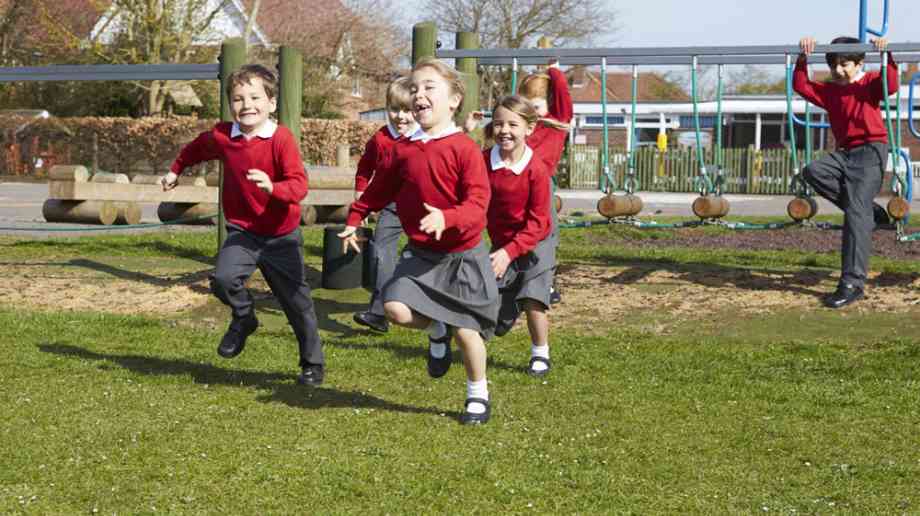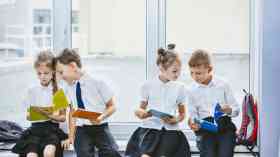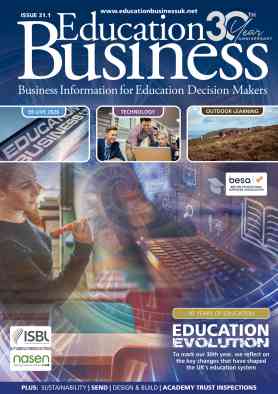
The importance of play opportunities in schools
Tamsin Brewis, Charity Director at the Children's Alliance, discusses the importance of play opportunities in schools and what benefits play brings to wellbeing, fitness and academic attainment
What is play? “Play is self-chosen and self-directed. Play is intrinsically motivated — means are more valued than ends. Play is guided by mental rules, but the rules leave room for creativity. Play is imaginative. Play is conducted in an alert, active, but relatively non-stressed frame of mind”.
This is a broad explanation of what we understand by ‘play.’ In some cases, when we think about play, we think about children doing something with limited purpose and benefit before the child becomes involved in more organised, adult-led activities. However, the broad consensus of research shows that play is intrinsic to the development of a child from birth to adulthood. If we take play away from a child, we take away their equivalent of adult ‘work’ which can lead to unhappy and depressed behavioural patterns.
Why do we value academic achievement over play? Is being able to pass a test more important than developing social skills? As parents, we want our children to learn; but what impact does the environment we create have on their learning ability?
Research summary, ‘The Case for Play in Schools’, produced by the Outdoor Play and Learning Organisation (*OPAL), provides compelling evidence demonstrating why play should be an integral and expanded component of the school curriculum. The benefits to both children and staff members are tenfold, but the report also points out the importance of considering time, space and permission when planning playtimes, the play environment, and the rules of playtime.
According to OPAL Director, Michael Follett: “Social, outdoor, free play is an essential element for every aspect of children’s mental, physical and social development and yet it has almost disappeared from the lives of many children. By providing at least 45 minutes quality play opportunities, for each child, each day, schools can help ensure that the benefits of play do not disappear entirely from childhood.”
Additionally, the summary reviewed playtime from the perspective of both the adult and the child. Whilst adults saw playtime as a means of improving the health, welfare, social, cognitive, physical and academic abilities of children the children associated playtime with freedom – a chance to try out new languages, use their imagination and to explore.
Other benefits included adapting to and negotiating with their environment – choosing to play in a collective or alone – and developing their own play culture. What’s more, as children learned to mix with one another, they demonstrated a greater ability to cope with risk and social issues, whilst in the classroom they were visibly more attentive with enhanced powers of concentration.
What therefore, do children learn through play and what does play provide?
Freedom is a starting point because unsupervised, ‘free’ play permits children to move their play in any direction they wish. This could be indoors/outdoors, using toys or materials, making things or taking things apart. Freedom is essential because it stimulates creativity, use of the imagination, exploration of the environment and the surrounding world. The child has an opportunity to make decisions, problem solve and take responsibility for their actions; building resilience in a safe, non-judgemental environment.
Playing enables children to play with others and negotiate, or remove themselves from a group, fostering equality and self-awareness. Play may be physical, social, risky, imaginative, and creative. All of these identified characteristics are essential to producing children who are healthy, content, want to learn and who have the ability to become the future leaders of adult society.
Can play be incorporated in the classroom as well as outdoors?
Psychologist and Child Development Theorist, Jean Piaget, asks: “Our real problem is – what is the goal of education? Are we forming children that are only capable of learning what is already known? Or should we try developing creative and innovative minds, capable of discovery from the preschool age on, throughout life?”
Is it possible to introduce play into the modern classroom and at the same time, include the accountability that features so prominently in our current curriculum?
It is now generally agreed that the early years set the foundation for the person we will be in future life as shown in a recent study from Harvard University. Positive early experiences lead to better health, more robust children, a better ability to manage stress and a longer life expectancy. When children learn through play, their developing brains are afforded the opportunity to develop in a positive, experimental, nurturing environment. This sharpens alertness, attention, and motivation and thus, creates greater readiness for learning.
This is why a play-based approach to learning, particularly in the 4-11 years, where the teacher encourages a child to inquire, question and experiment will lead to better achievement. We want children to learn to think independently, question what they are being taught and to think ‘outside the box’. This is only feasible if the learning is play-based; initiated by the child and supported by the teacher. Educators such as Maria Montessori and Stanley Greenspan recognised these methods of teaching and implemented them successfully.
Although physical activity is only one type of play, there is clear evidence that physical activity has an impact on the fitness of the brain. This applies throughout the life course. ‘The Revolutionary New Science of Exercise and the Brain,’ by Dr John Ratey explores the impact of a healthy body and mind on academic achievement. Ratey argues that physical activity has an impact on preparing nerve cells to bind to one another which is the basis for logging in new information. This then has an impact on the development of new nerve cells from stem cells in the hippocampus which prepares the brain to learn and helps mental retention.
Effectively, exercise facilitates learning.
These theories have been tested in schools in Chicago where the implementation of early morning physical activity has resulted in a marked improvement in both academic standards and mental welfare.
Following a pandemic, The Children’s Alliance published a report – ‘The Physical Health of Children and Young People’ – emphasising the importance of play and the factors needed for a healthy play environment; space, time and freedom to explore. (7) Children have spent nearly two years isolated away from friends, family, indoor and outdoor play spaces and are only now learning all those basic skills of freedom, curiosity, socialisation, exploration and decision making. If nothing else, this should be reason enough for play to be an essential part of the curriculum for all children allowing them to grow, develop and gain confidence in a safe, free, non-judgemental space.
This is echoed by Mark Hardy, chair of the Association of Play Industries: “Providing time, space, opportunity and a positive attitude to play benefits children of all ages. Physical activity boosts concentration, learning behaviours and mood. Children have natural energy and enthusiasm so physical activity needs to be built into the whole school day: physical literacy levels will improve but schools also report improvements in behaviour and wellbeing too”.
In a modern society, the tendency is for education to be done ‘to’ children, but children will naturally educate themselves.
This proposition is considered by Dr Peter Gray in ‘Free to Learn’ where he states that: “Children are biologically predisposed to take charge of their own education. When they are provided with the freedom and means to pursue their own interests, in safe settings, they bloom and develop along diverse and unpredictable paths, and they acquire the skills and confidence required to meet life’s challenges.”
Maybe now we should be looking at what our culture actually wants from ‘education’? Are tests, league tables and corresponding results the sole measure of success or should education offer a multi-faceted approach – less structure, less adult controlled environments, more freedom to explore and create?
‘Play’, in all its myriad forms, certainly has a central role to play!
About the Author
Tamsin Brewis is 'a Water Babies Franchisee and Charity Director at The Children’s Alliance, an initiative set up by Water Babies, the UK’s largest baby swimming school, to broaden politicians’ awareness of the health and wellbeing issues currently facing children in the UK. The Children’s Alliance is campaigning for the establishment of a Minister for Children at Cabinet level to ensure the future of children and young people takes its rightful place at the heart of Government policy making.
Latest News
04/02/2026 - 10:15
The World Health Organisation (WHO) has published a report providing recommendations for healthy and nutritious food in schools around the world.
03/02/2026 - 10:48
Education Business LIVE on 26 March will be hosting a practitioner-focused roundtable led by Whole School SEND.
03/02/2026 - 10:38
The Council for Disabled Children (CDC) and IMPOWER have announced a new partnership offering insight and practical support to local SEND systems at a critical point in SEND system reform.
02/02/2026 - 13:08
The Department for Education has opened applications for 1,500 schools to sign up for its Best Start free breakfast clubs in September.
02/02/2026 - 09:36
The Welsh Government has published a consultation to gain views on extending its Talk With Me programme so that it can support 5 to 11-year-olds with their speech, language and communication skills.







